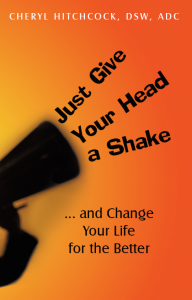 Virtually anyone who has been exposed to an overwhelmingly stressful situation can experience the symptoms of post-traumatic stress disorder. If this has happened in your life, you may need help learning to cope with PTSD.
Virtually anyone who has been exposed to an overwhelmingly stressful situation can experience the symptoms of post-traumatic stress disorder. If this has happened in your life, you may need help learning to cope with PTSD.
While it cannot be said that there is a “cure” for PTSD, you can learn to use Positive Coping Actions to reduce anxiety and lessen other distressing reactions. Positive coping actions also improve the situation in ways that will not harm you, the survivor, further – and will do so ways that last beyond the moment.
What are Positive Coping Actions for coping with PTSD?
- Education – Learning about trauma and PTSD is very helpful for trauma survivors. When you learn that PTSD is common, and that your problems are shared by so many survivors, you will also recognize that you are not alone, or weak – or crazy.
- Support – Seek support by talking to others. When you talk to others about your problems with PTSD, it’s not unusual for something positive to come of it. You should feel less alone and better understood and may even find guidance for coping with problem situations. Professional counsellors and support groups will better understand the effects and consequences of trauma, but even talking with a supportive friend or family member can be helpful in overcoming your challenges.
- Medical check-up – Working with your doctor to keep your body healthy will also help you cope with PTSD. At the very least, you’ll not have to deal with the additional stress of physical illness on top of your trauma symptoms. Your physician may also be able to help you find counselling.
- Meditation – Or other relaxation methods can help you cope, both in the moment and long-term. You may also wish to try muscular relaxation exercises, breathing exercises, swimming, cycling, jogging, stretching, yoga, prayer, listening to quiet music, spending time in nature, and anything else that helps you focus on the moment, rather than your trauma.
- Distracting actions – Using positive action to distract you from your trauma can be helpful. Artistic expression has been to be very helpful for survivors of serious trauma, as both a distraction and as a form of expression.
- Medication – Anti-anxiety medication is sometimes helpful to improve sleep, reduce anxiety, irritability, and anger, as well as reduce the urge to drink or use drugs.
- Counselling – In a culture that promotes self-help, counselling can sometimes be forgotten as a viable, helpful alternative. Yet, it’s not uncommon for symptoms of PTSD to worsen over time, to the point that these coping actions no longer work for you. Feeling fearful and depressed is common in such circumstances and, if you find yourself in such a place, calling a counsellor or therapist should be your next step.
As a trauma survivor, seeking treatment and learning to recognize and understand the things that upset you places you in a far better position to cope with the symptoms of PTSD – in the moment and over the long term.
If you’re struggling to cope with a traumatic experience in your life, and need help coping with PTSD or other symptoms of stress, please get in touch with me today.


Speak Your Mind